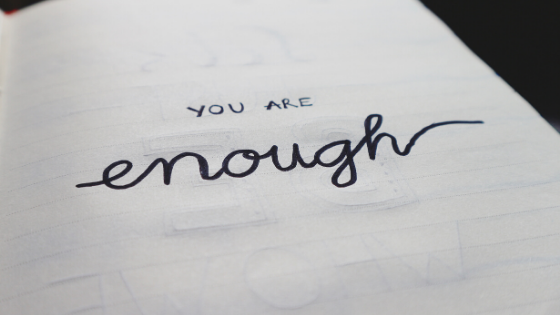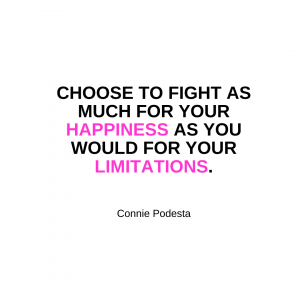
By Connie Podesta, Hall of Fame Speaker
Straight talk? If you’re 25, 65+ years old or anywhere in between and you’re still blaming your parents for a few (or many) things you believe are responsible for the condition of your life right now – then you’re totally on the wrong path. Now I’m not saying to discount any negative childhood messages or experiences. I’m definitely 100% an advocate for children who’ve been through trauma and I know what that means moving into adulthood. What I am saying is that when you reach the age of adulthood, it’s time to use your awareness of what you’ve been through as a lesson plan of what NOT to do rather than a reason to stay stuck in old mindsets and habits. Adult victims seldom get their needs met or find the happiness they feel they were robbed of as a child.
In many households growing up, there is dysfunction, sometimes abuse, sometimes apathy, sometimes neglect. Even the best of parents can get it wrong. It’s our job as adults to make the kind of healthy choices necessary to get the help and confidence we need to distance ourselves from the “old tapes” that wounded us and created scenarios of negative self-worth. That way we can refuse to perpetuate the harm to ourselves and others any past dysfunction has caused. Because the truth is, that no matter how many times you were told you weren’t enough, that’s simply not the truth.
As a therapist, sadly, I’ve heard it all. People who were often fed a diet of negative and damaging labels growing up. “You’re too stupid. Too lazy. Too smart. Too fat. Too skinny. Too ugly. Too much like (insert the name). Too much of this or that.” All meant to control and condemn and, in hindsight, says way more about the person (even parent) delivering the diatribes than they could ever possibly do with a child.
There’s an old saying, “Hurt people hurt people.” It’s so true. We can’t erase our history. Can’t rewind a magic clock and dial into a fairy-tale childhood with perfect parents. What we can do is break the unhealthy cycles and change the channels. We can choose to release ourselves from the blame, shame, and name-calling of our youth and replace all of that with healthy boundaries, positive, affirming self-talk, and a challenge to understand that change is ours to make.
For some that practice will be simpler than others. For some, it will take work – and time – and perspective. It will take making the CHOICE to fight as much for your happiness as you would for your limitations. That’s a big ‘ah-ha’ for a lot of people. It can be seemingly be easier to dig in with declarations like, “I have a RIGHT to be angry! Sad! Broken!” It can feel almost comfortable to stay in the blame game of whose fault it is that your life is not where you want it to be. I’ve seen people stretch back generations to validate their position.
I’ve also seen the complete opposite. People who get to that rock-bottom place and say, “Enough is enough. I am worthy. I am smart. I am enough.” Then set out to shift their belief systems and elevate their life experience.
Who and what do you want to be? Stuck? Or serious about adopting the change you need to live an exceptional life? It’s up to you.
Watch the video below for more…
You might also want to check out my series The Top 10 Things You Need to Quit to Become a Better You on YouTube.
Could your team members benefit from serious happiness strategies that allow them to break out of limited belief systems and help them to create transformational change in their lives and work? Give me a call! I’ve got just the right keynote topic for your next event.